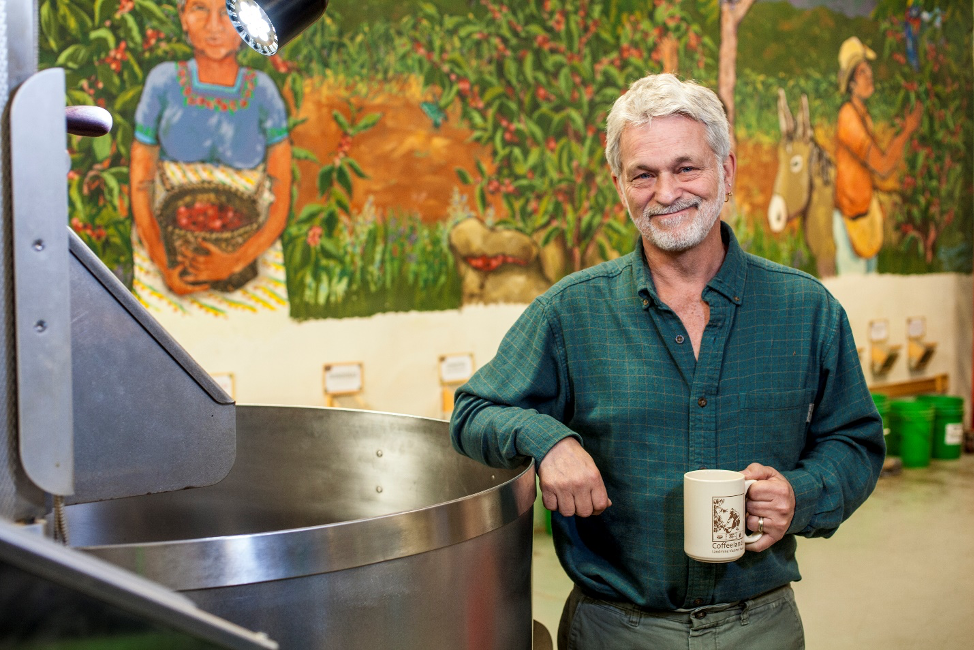Liquor wasn’t the only beverage whose consumption trends were turned upside down by the coronavirus (sales have bubbled up more than 24%) — Americans are buying more premium coffee than ever for at-home brewing and imbibing.
Coffee sales were predicted to rise almost 5% in 2020, according to research firm Mintel, with the retail versions of brands like Starbucks, Caribou and Peet’s “flying off the shelves.” Meanwhile, cafe-prepared sales plummeted, because of pandemic-related quarantines and shutdowns. Starbucks, for example, reported a 14% decline in comparable-store sales for the 2020 fiscal year (which ended Sept. 27, 2020).
I gave up coffee in August 2019 (yes, that diet again), so I haven’t been personally perking up those sales. But like so many things food-related, 2020 was a real wake-up call for consumers, who have been paying more attention than ever to the source of what passes their lips. I’d like to think that concern is flowing over into buying decisions.
With that in mind, I responded affirmatively to the chance to speak with Dean’s Beans founder and CEO Dean Cycon over the summer. The company, which hails from Orange, Massachusetts, recorded a tripling of sales on its web site in the early days of the pandemic, even as almost 60% of its wholesale business (product sold to restaurants and cafes) evaporated, Cycon told me. Like many small businesses, it was pivot or perish.
Some of that uptick is certainly due to some local love — Dean’s Beans is sited in a place that was supposed to become a hazardous waste site, and it has focused on inclusive hiring in its home town. But just as important is how Dean’s Beans touches communities in the faraway places where it sources its coffee beans. It buys only from small farming cooperatives, mainly run by Indigenous peoples, in countries including Colombia, East Timor, Ethiopia, Guatemala, Mexico, New Guinea, Nicaragua, Peru and Sumatra. For this approach, the company received a “Best for the World: Community” award from B Corporation in 2019. The company is a member of the Fair Trade Federation.
“In helping farmers understand the system and helping them become more active, then I have accomplished something,” Cycon says. “It’s about empowering people to become agents of change in their communities.” (You can read more about his philosophy in this June 2020 interview; or in his 2007 book, “Javatrekker: Dispatches from the World of Fair Trade Coffee.”)
As more consumers indulge their caffeine habits at home, Cycon encourages them to step back and consider the environmental and social impact of every sip they take. Look behind adjectives such as “ethical sourcing,” he urges, and get acquainted with what they really mean.
“Labels are a real mixed blessing. They help the consumer identify certain ethical or environmental goals or behaviors of the company,” Cycon says. “On the other hand, they hide as much as they illuminate.”
While Dean’s Beans focuses on environmental stewardship and biodiversity (it’s the only coffee company that invests in Certified Bird Friendly farming practices promoted by the Smithsonian Migratory Bird Center) , the issue dominating Cycon’s thoughts these days is that of economic equity — a focus on ensuring that the farmers who grow Dean’s Beans beans are paid a living wage. The video below walks you through the math:
While Dean’s Beans certainly isn’t the only local brand advocating these sorts of practices, which in itself is a wonderful thing. The brands in your store will depend on the region, but here are seven questions you should ask before you grab that next big of beans off the shelf or an e-commerce site:
Were they organically grown?
Is the plantation cultivated in harmony with other habitat, retaining trees that facilitate bird migration and that create a healthy growing environment for the local community?
Are the farmers paid a living wage?
How energy-efficient is the roasting process and does it use clean sources of power?
How does the company support growers? Are these long-term relationships or opportunistic ones?
What specific certifications does the company hold and how does it support them? (The ones you’ll hear often: Fair Trade, Certified Organic, Certified B Corporation and 1% for the Planet).
How does the company interact and give back to its local community?
If coffee is something that touches your everyday life, I encourage you to start seeking the answers.

